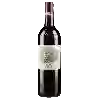
Winery GinestetPrieuré Saint-Pierre Bordeaux
This wine is a blend of 2 varietals which are the Cabernet-Sauvignon and the Merlot.
In the mouth this red wine is a powerful with a nice balance between acidity and tannins.
This wine generally goes well with poultry, beef or veal.
Taste structure of the Prieuré Saint-Pierre Bordeaux from the Winery Ginestet
Light | Bold | |
Smooth | Tannic | |
Dry | Sweet | |
Soft | Acidic |
In the mouth the Prieuré Saint-Pierre Bordeaux of Winery Ginestet in the region of Bordeaux is a powerful with a nice balance between acidity and tannins.
Food and wine pairings with Prieuré Saint-Pierre Bordeaux
Pairings that work perfectly with Prieuré Saint-Pierre Bordeaux
Original food and wine pairings with Prieuré Saint-Pierre Bordeaux
The Prieuré Saint-Pierre Bordeaux of Winery Ginestet matches generally quite well with dishes of beef, veal or game (deer, venison) such as recipes of burger roll, roast veal with milk and rosemary or duck breast with balsamic vinegar.
Details and technical informations about Winery Ginestet's Prieuré Saint-Pierre Bordeaux.
Discover the grape variety: Cabernet-Sauvignon
Cabernet-Sauvignon noir is a grape variety that originated in France (Bordeaux). It produces a variety of grape specially used for wine making. It is rare to find this grape to eat on our tables. This variety of grape is characterized by small bunches, and small grapes. Cabernet-Sauvignon noir can be found in many vineyards: South-West, Loire Valley, Languedoc & Roussillon, Cognac, Bordeaux, Armagnac, Rhone Valley, Provence & Corsica, Savoie & Bugey, Beaujolais.
Informations about the Winery Ginestet
The Winery Ginestet is one of of the world's great estates. It offers 235 wines for sale in the of Bordeaux to come and discover on site or to buy online.
The wine region of Bordeaux
Bordeaux, in southwestern France, is one of the most famous, prestigious and prolific wine regions in the world. The majority of Bordeaux wines (nearly 90% of the production Volume) are the Dry, medium and Full-bodied red Bordeaux blends for which it is famous. The finest (and most expensive) are the wines of the great châteaux of Haut-Médoc and the right bank appellations of Saint-Émilion and Pomerol. The former focuses (at the highest level) on Cabernet Sauvignon, the latter on Merlot.
The word of the wine: Sirupy
Close to the sensation of unctuousness, said of a wine that gives the impression of having the consistency of a syrup.














